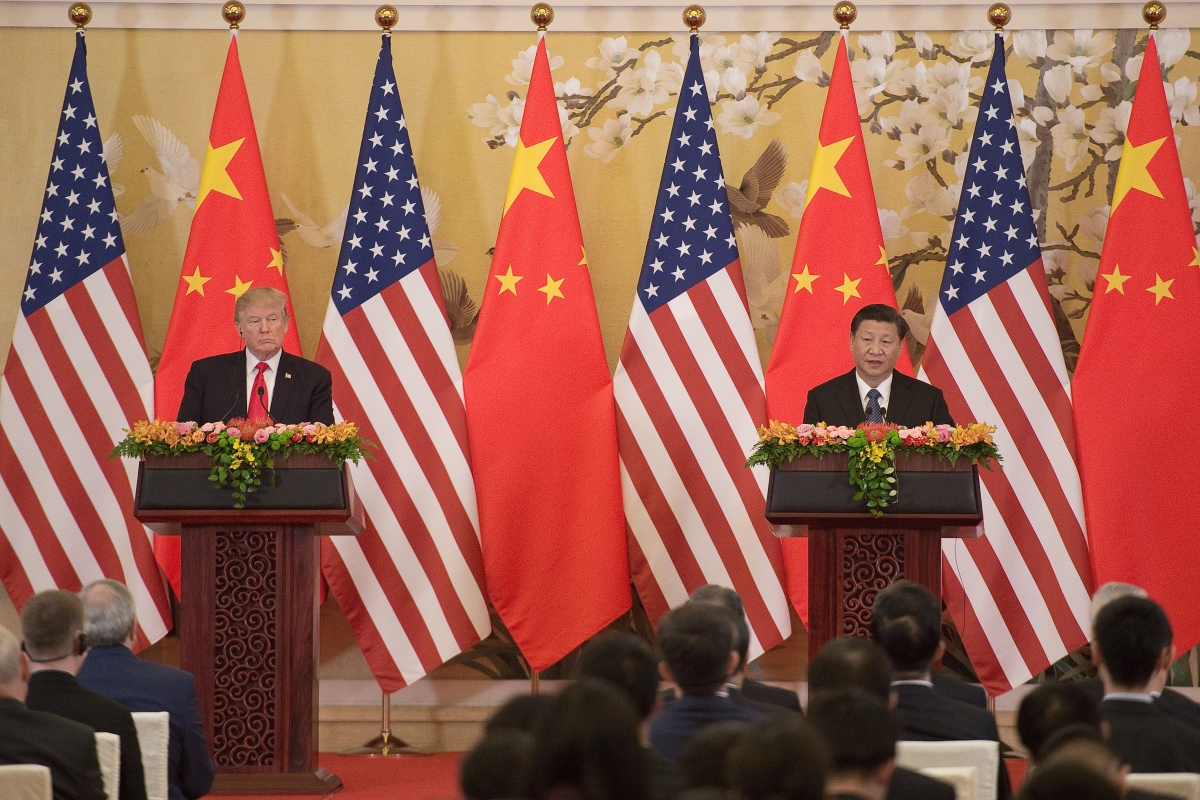Saving Lives in America, China, and Around the World

US President Donald Trump (L) and China's President Xi Jinping speak during a joint statement in Beijing on November 9, 2017. (NICOLAS ASFOURI/AFP via Getty Images)
NICOLAS ASFOURI/AFP via Getty Images
NEW YORK, April 3, 2020 — Over 90 bipartisan, high-level former government officials and experts in the U.S.-China relationship released a joint statement today urging cooperation between the United States and China in a much-needed effort to combat the COVID-19 global health crisis.
The statement was released by Asia Society’s Center on U.S-China Relations and the 21st Century China Center at UC San Diego’s School of Global Policy and Strategy.
The statement seeks to encourage the recent cooperative steps taken between Washington and Beijing and to demonstrate that there is broad bipartisan support for furthering such cooperation.
Said Stephen Hadley, former National Security Advisor: “We want to encourage a global effort with America’s allies and friends and other nations to meet the coronavirus challenge. This is all about saving lives –American lives at home, and the lives of others abroad.”
The statement acknowledges the serious differences in interests and values between the United States and China, but argues the United States need not concede its interests or values—or condone China's handling of the crisis—to cooperate on the pandemic. The statement cites the precedent set during the Cold War when the United States and Soviet Union worked together to vaccinate the world against smallpox.
Kurt Campbell, former Assistant Secretary of State for East Asian and Pacific Affairs explains, “Even with all the distrust and disharmony, it is possible for the leadership in the United States and China to find the necessary common ground to combat the coronavirus. The American people deserve no less.”
The joint statement identifies a range of applicable areas for collaboration—including through forums such as the G20—to develop a clear and transparent mechanism to share relevant scientific data; compare best medical practices; align efforts to ramp up production and distribution of medical supplies; and coordinate funds and clinical trials for vaccine and treatment research, testing, production, and distribution.
According to Susan Shirk, Chair of the 21st Century China Center, “Global challenges require global solutions, which must involve coordination between the world’s two largest economies. We are going to need a massive international effort on multiple fronts to help developing countries deal with the epidemic, develop a vaccine, and then vaccinate billions of people. Other nations will be hesitant to act unless they are convinced the United States and China are on the same page.”
"Whatever the state of grace in the bilateral U.S-China relationship,” says Orville Schell, Arthur Ross Director of the Center on U.S.-China Relations, “a global challenge of the magnitude of the coronavirus pandemic compels us to do everything we can to find ways to collaborate to save lives."

About the Asia Society Center on U.S.-China Relations
The Center on U.S.-China Relations was founded in 2006 and is based at Asia Society’s New York headquarters. The center undertakes projects and events which explore areas of common interest and divergent views between the two countries, focusing on policy, culture, business, media, economics, energy, and the environment.

About the 21st Century China Center at UC San Diego’s School of Global Policy and Strategy
The 21st Century China Center was established in 2011 at the UC San Diego School of Global Policy and Strategy. It is a leading university-based think tank that produces scholarly research and informs policy discussions on China and U.S.-China relations.